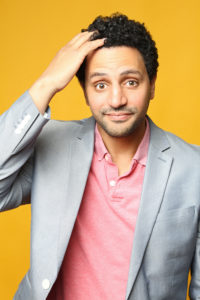Yesterday the Asbury Park Press published a six-page article on the woes at Asbury Park High School. Last year 51% of the Asbury Park senior class graduated from high school and only 2% achieved a score of 1550 or above on their SAT’s, a measure of college and career-readiness.
Asbury Park school officials say enrollment has drastically declined in the past decade, with students fleeing to charter and private schools. Interim Superintendent Robert Mahon said he believes most parents pull their children out of the district because of violence and high dropout rates.
Reporter Niquel Terry compares Asbury Park’s ongoing inability to improve student outcomes and create safe environments with more successful models in both the charter sector and the traditional school sector, specifically in Union City. Gloria Bonilla-Santiago, a professor at Rutgers and founder of LEAP Academy University Charter School in Camden points to a number of ways that non-traditional schools promote student success: extended class days, Saturday instruction, smaller class sizes and parental engagement, school uniforms, family support programs and parenting classes.
Albert Shanker famously defined charter schools as “laboratories of innovation.” In other words, charter schools — or even, I suppose, traditional schools willing to think out of the box (like in Union City) — can conduct successful experiments that would then be transferred to other public schools. Why doesn’t that happen at Asbury Park High School? A student there gives an example of basic organizational incompetency: a group of students went weeks through a new school year without being assigned an English class. Once scheduled for the class, no teacher showed up.
Asbury Park’s dysfunction certainly can’t be ascribed to lack of resources; cost per pupil there tops $30,000 per year, more than any other Abbott district and certainly more than any charter school. Maybe there’s a point at which the traditional paradigm of old-school education is so deeply rooted that it becomes impervious to change. Maybe it’s a teacher union problem. (Imagine having to negotiate contracts that greatly expand student contact time, even with salary increases. Can you imagine NJEA agreeing to Saturday classes?)
Bonilla-Santiago says that traditional schools, especially those who serve economically-disadvantaged kids, need to “reinvent themselves” and “come up with a new model” because “traditional teaching models that are not as effective anymore…You have to be prepared, get there early … and have the curriculum that can teach these children and hold people accountable.”
What will it take for this to happen at Asbury Park?


